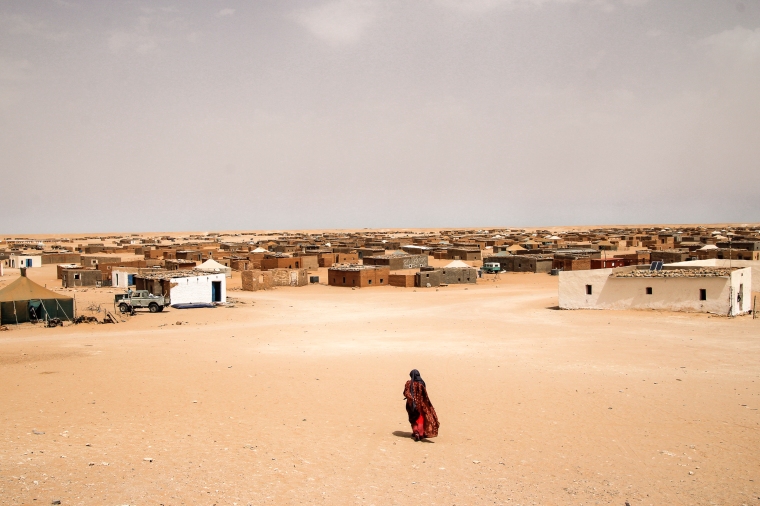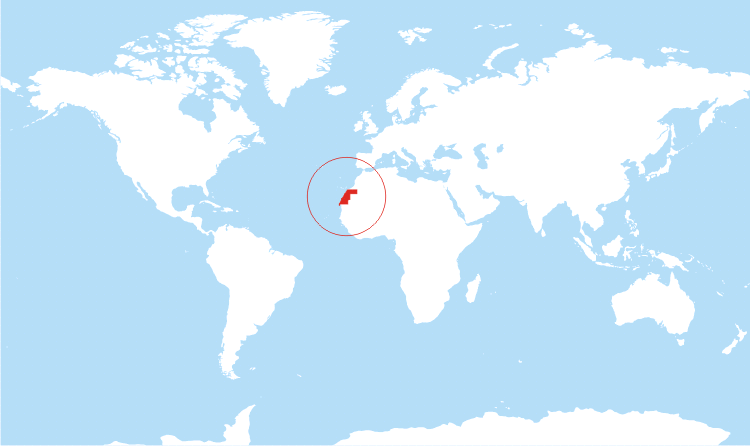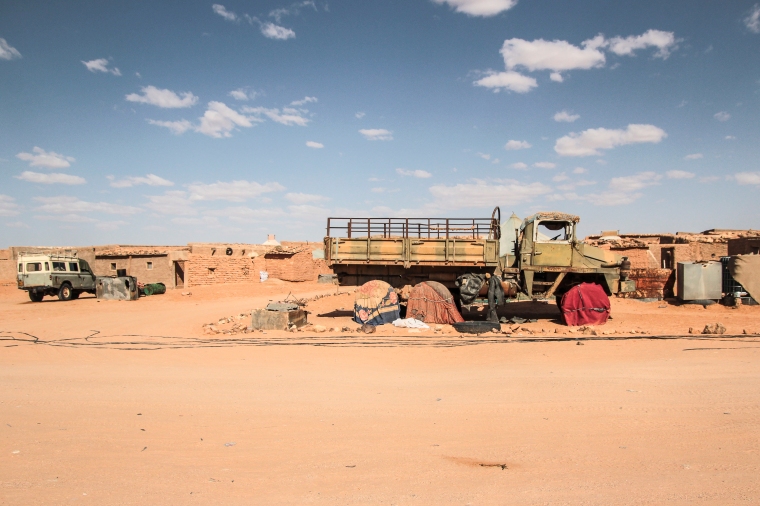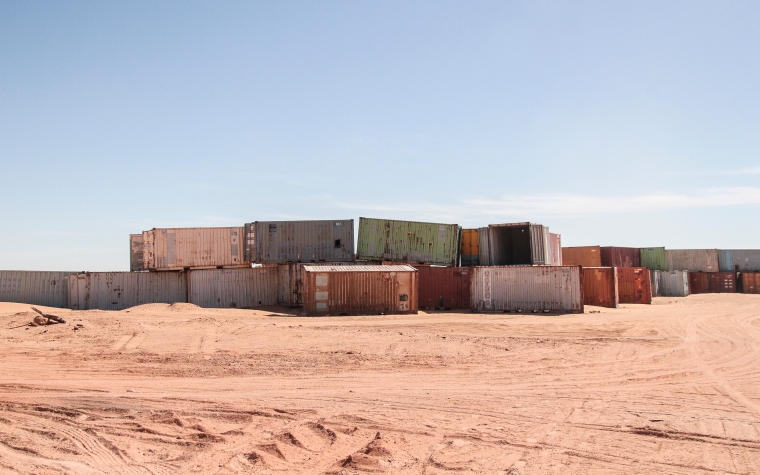In exile for 40 years, more than a hundred thousand of people could be return home tomorrow. What would they bring with them to remember an entire life spent waiting? South of Algeria, Sahara desert, one of the most hostile areas on earth. More than a hundred thousand people live in five refugee camps. Families fleeing from a conflict which exploded in the mid-70s and welcomed in the neighbouring Algeria.

As the dictator Franco died, in 1975, Spain abandoned the occupied territories of Spanish Sahara and the Kingdom of Morocco and Mauritania enter peacefully in those territories. A silent colonization where thousands of people moved to those lands attracted by public incentives and new opportunities of employment. The Sahara people, freed from the Spanish control, don’t accept this new intrusion in their territory.
Started in the Cold War period, the conflict obliges many countries to take a stand. The Saharawis obtain the support of friend countries, like Libya, Cuba and especially Algeria, which was trying to oppose to the desire for expansion of the Kingdom of Morocco. After a few years, Mauritania renounces to Western Sahara. Morocco instead is still defending this unilateral annexation which has never been approved or recognized by international law. Since the beginning of the 70s, bombings and violence on the people of Western Sahara have been numerous.

During the 80s the Kingdom of Morocco starts the building of a wall along 2000 Km of borders, to control invaded territories and try to contain the conflict which seems never ending. The Saharawi fled to neighbouring Algerian desert cannot go back to their homes, and guerrillas’ incursions in the disputed areas are limited.

The United Nations succeed in imposing a cease-fire only in the early 90 and approve the organization of a referendum to decide on the independence or not of Western Sahara from the Kingdom of Morocco. That referendum was never held and families fled to Algeria at the end of the 70s are still waiting to return home. More than a hundred thousand people survive for decades thanks to humanitarian aid.
Yet, in these refugee camps life goes on. So many people have died far from home. Many young people have studied, got married and have grown their children in this desert. Forty years have passed, but the Saharawis have never stopped wanting to do the job of their dreams, to cultivate the land in spite of the hardships of the desert, to stay together and have fun. The aim is still only one, the big common desire for all: the return to home, in Western Sahara. A goal that is clear and hard as the conditions of the desert where since decades thousands of people are forced to live.

Portraits of Memory tells a conflict forgotten by the main media, and it does so through objects of the daily life which become the key to understand the passage of time. Far away from their land, forced into exile, memories cannot be the past and the future is a present in constant waiting.